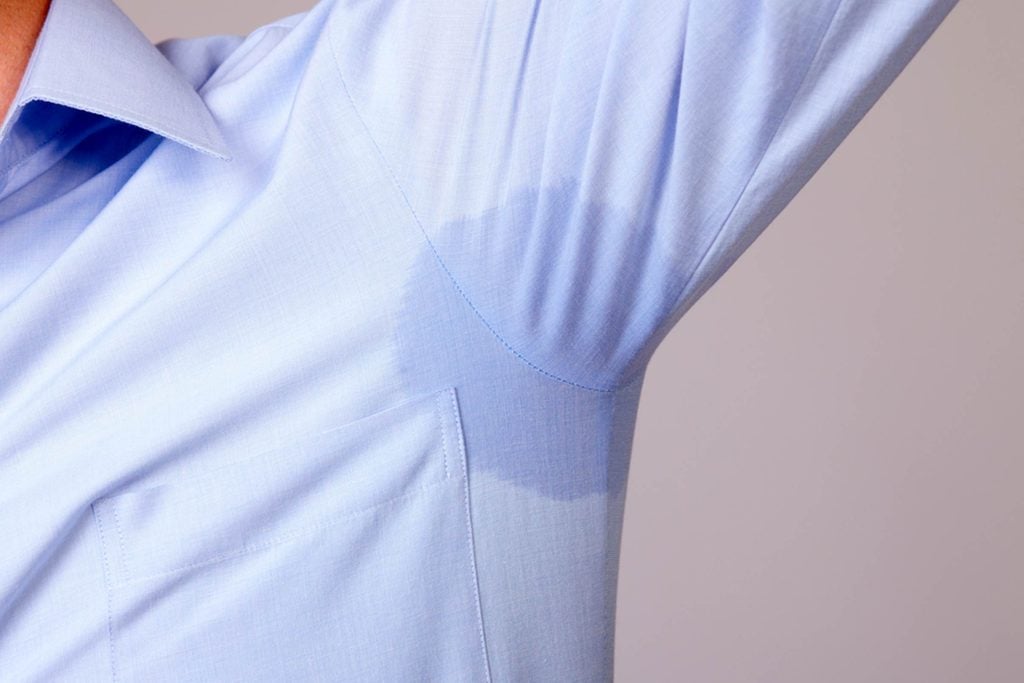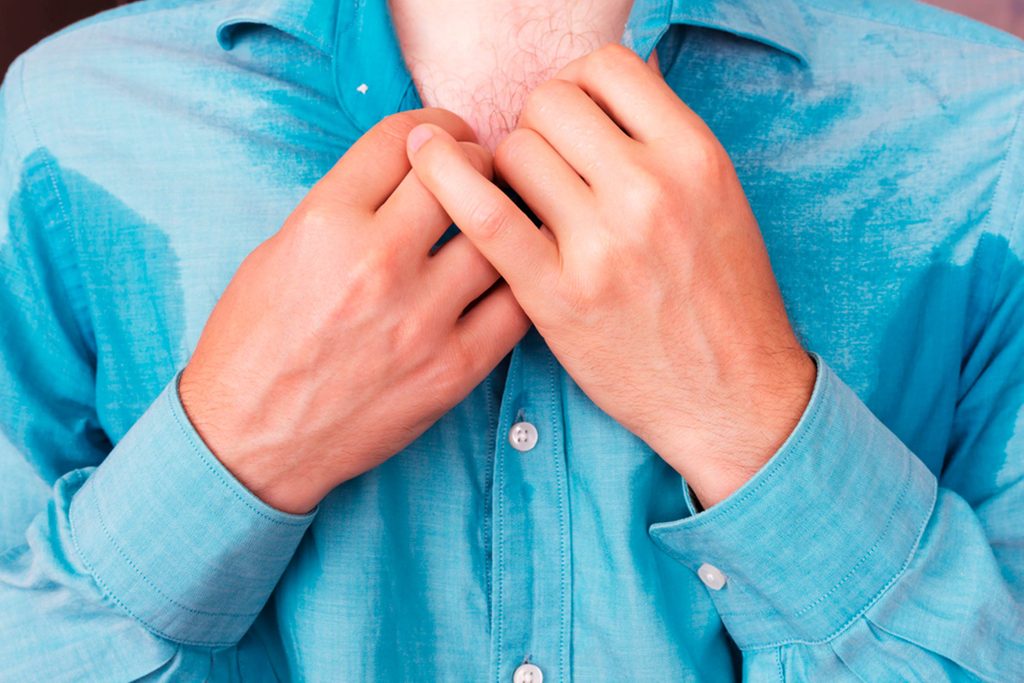Yes, You Probably Have Body Odor—Even If You Can’t Always Tell When You Smell
Updated: Jun. 30, 2017
Think you stink? Go ahead and sneak a sniff of your own armpit, though it might not actually tell you how you smell.
We get used to how we smell, according to science. And it works both ways. Things that smell good begin to smell less good the longer we smell them, while things that smell bad tend to smell less bad over time. This trend toward neutral is known as “olfactory fatigue” or “olfactory habituation.” So then how is anyone supposed to know if they’ve got body odor (the dreaded “B.O.”)?
The answer is simple: If you’re capable of sweating, you should assume you’ve got B.O. That’s because virtually every human who has reached puberty has sweat glands that produce chemicals that emit a scent when they interact with bacteria that naturally occurs on the skin, according to the Centers for Disease Control and Prevention. In fact, it’s been estimated that only 2 percent of the population may not have to worry about body odor, at least under their arms, according to a 2013 study involving 6,495 women in England. Still, a full 75 percent of those whose armpits are incapable of stinking routinely use deodorant anyway, which indicates that how we perceive the way we smell is a complicated mix of biology and cultural cues, according to one of the researchers, Ian Day, MD, PhD.

The fact that you probably have armpits that produce a scent is not necessarily a bad thing. Our unique scents can make us seem more attractive to potential partners, according to this 2017 study and this 2011 study. And aspects of our personalities are revealed through our scents, according to this 2016 study, although cosmetic use can affect assessments of others based on body odor. So the question really isn’t whether or not you have B.O., but how to get rid of body odor when it’s bad.
The first line of defense against bad B.O. is, of course, a good regular cleansing, because “persistent body odor can be caused by poor hygiene,” says James Wantuck, MD, chief medical officer of PlushCare, an online urgent care provider. “Poor hygiene leads to a buildup of bacteria on your skin, and those bacteria break down your sweat into malodorous chemicals causing the smell.” So, the obvious take-away is to keep your skin clean and fresh. Deodorants are also helpful, especially the ones that contain ingredients such as alcohol or triclosan that stop bacterial growth. Antiperspirants are deodorants that also contain aluminum, which effectively plugs up the sweat glands. “If you don’t sweat much, using a deodorant without antiperspirant is the way to go,” advises Dr. Wantuck, who is an advocate for minimizing chemical exposures unless absolutely necessary.
What we put into our bodies affects our body odor as well. “We have all experienced the smell of excessive garlic intake, and other foods are well known to cause you to exude odors including onion, curry, and alcohol,” Dr. Wantuck notes, but he also cites taking penicillin as a potential cause of unpleasant body odor. In addition, this study showed that red meat consumption negatively affects body odor. Here are some foods you can eat to smell better.
“Another interesting and unexpected cause of B.O. is whole-body laser hair removal—there have been case reports of people having severe body odor following whole-body laser hair removal,” says Dr. Wantuck.
But whatever the source of the smell, it comes out in your sweat, he adds, so your choice of clothing makes a difference too. “Cotton or other water-absorbing substances are the best material. Removing wet or sweaty clothing immediately, and changing and washing clothing daily is important.” Here are some ways to make your clothing smell better.

If you fear that your B.O. is extreme, and it’s interfering with your quality of your life, your doctor may be able to help. Depending on the location and type of odor, a doctor may prescribe an antibiotic cream to kill the odor-causing bacteria. In severe cases, they can use antibiotic pills, Botox injections into your sweat glands, or other surgical techniques to help get rid of the smell.
On the other hand, unpleasant body odor can also signal a real problem. Although it’s rare, bad B.O. may be the result of “certain medical conditions such certain metabolic disorders, liver or kidney failure, heavy metal poisoning, gout, and typhoid fever,” according to Dr. Wantuck. “If you have never had a persistent body odor problem before, and it starts suddenly, think about what has changed in your hygiene regimen. “If you haven’t been doing anything different, seeing a doctor is critical, because you may have an undiagnosed medical condition,” Dr. Wantuck advises.
